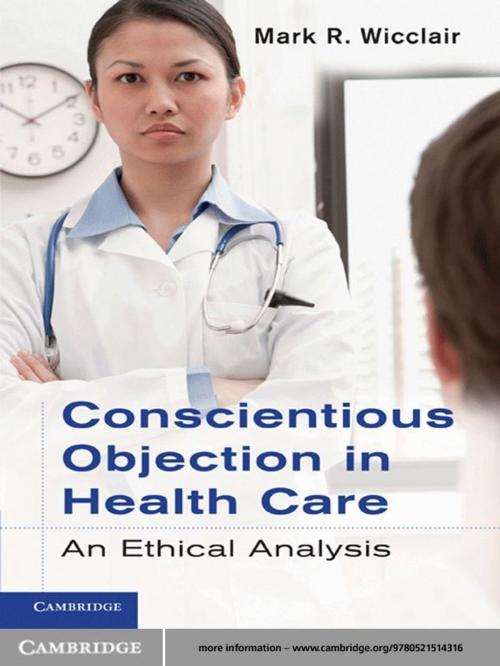Conscientious Objection in Health Care
An Ethical Analysis
Nonfiction, Religion & Spirituality, Philosophy, Ethics & Moral Philosophy, Health & Well Being, Medical| Author: | Mark R. Wicclair | ISBN: | 9781139097284 |
| Publisher: | Cambridge University Press | Publication: | May 26, 2011 |
| Imprint: | Cambridge University Press | Language: | English |
| Author: | Mark R. Wicclair |
| ISBN: | 9781139097284 |
| Publisher: | Cambridge University Press |
| Publication: | May 26, 2011 |
| Imprint: | Cambridge University Press |
| Language: | English |
Historically associated with military service, conscientious objection has become a significant phenomenon in health care. Mark Wicclair offers a comprehensive ethical analysis of conscientious objection in three representative health care professions: medicine, nursing and pharmacy. He critically examines two extreme positions: the 'incompatibility thesis', that it is contrary to the professional obligations of practitioners to refuse provision of any service within the scope of their professional competence; and 'conscience absolutism', that they should be exempted from performing any action contrary to their conscience. He argues for a compromise approach that accommodates conscience-based refusals within the limits of specified ethical constraints. He also explores conscientious objection by students in each of the three professions, discusses conscience protection legislation and conscience-based refusals by pharmacies and hospitals, and analyzes several cases. His book is a valuable resource for scholars, professionals, trainees, students, and anyone interested in this increasingly important aspect of health care.
Historically associated with military service, conscientious objection has become a significant phenomenon in health care. Mark Wicclair offers a comprehensive ethical analysis of conscientious objection in three representative health care professions: medicine, nursing and pharmacy. He critically examines two extreme positions: the 'incompatibility thesis', that it is contrary to the professional obligations of practitioners to refuse provision of any service within the scope of their professional competence; and 'conscience absolutism', that they should be exempted from performing any action contrary to their conscience. He argues for a compromise approach that accommodates conscience-based refusals within the limits of specified ethical constraints. He also explores conscientious objection by students in each of the three professions, discusses conscience protection legislation and conscience-based refusals by pharmacies and hospitals, and analyzes several cases. His book is a valuable resource for scholars, professionals, trainees, students, and anyone interested in this increasingly important aspect of health care.















